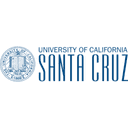This course is part of Bayesian Statistics Specialization.
This course cannot be purchased separately - to access the complete learning experience, graded assignments, and earn certificates, you'll need to enroll in the full Bayesian Statistics Specialization program. You can audit this specific course for free to explore the content, which includes access to course materials and lectures. This allows you to learn at your own pace without any financial commitment.
4.3
(14 ratings)
4,570 already enrolled
Instructors:
English
What you'll learn
Build and analyze temporal dependency models using Bayesian methods
Implement time series analysis and forecasting in R
Master stationary time series processes and their properties
Apply dynamic linear models to real-world data
Perform Bayesian filtering and smoothing techniques
Develop skills in spectral analysis and model selection
Skills you'll gain
This course includes:
6.7 Hours PreRecorded video
10 quizzes
Access on Mobile, Tablet, Desktop
FullTime access
Shareable certificate
Closed caption
Get a Completion Certificate
Share your certificate with prospective employers and your professional network on LinkedIn.
Created by
Provided by

Top companies offer this course to their employees
Top companies provide this course to enhance their employees' skills, ensuring they excel in handling complex projects and drive organizational success.





There are 5 modules in this course
This comprehensive course focuses on Bayesian approaches to time series analysis. Students learn to build models describing temporal dependencies, perform Bayesian inference, and implement forecasting techniques using R. The curriculum covers stationary time series processes, autoregressive models, and Normal Dynamic Linear Models (NDLMs). Through hands-on projects and practical examples, participants develop skills in model building, parameter estimation, and time series forecasting while applying Bayesian statistical methods.
Introduction to time series and the AR(1) process
Module 1 · 5 Hours to complete
The AR(p) process
Module 2 · 5 Hours to complete
Normal dynamic linear models, Part I
Module 3 · 5 Hours to complete
Normal dynamic linear models, Part II
Module 4 · 4 Hours to complete
Final Project
Module 5 · 2 Hours to complete
Fee Structure
Individual course purchase is not available - to enroll in this course with a certificate, you need to purchase the complete Professional Certificate Course. For enrollment and detailed fee structure, visit the following: Bayesian Statistics Specialization
Instructor
Leading Expert in Bayesian Statistics and Biomedical Data Analysis at UC Santa Cruz
Raquel Prado is a Professor of Statistics in the Jack Baskin School of Engineering at the University of California, Santa Cruz, where she has been a faculty member since 2001. She holds a Ph.D. in Statistics and Decision Sciences from Duke University and is a Fellow of both the American Statistical Association (ASA) and the International Society for Bayesian Analysis (ISBA). Her research focuses on developing and implementing modeling, inference, and prediction tools for data with temporal and spatio-temporal structures, particularly in analyzing non-stationary and large-dimensional biomedical signals and neuroimaging data. Prado has published extensively, including the book Time Series: Modeling, Computation, and Inference (second edition co-authored with Marco Ferreira and Mike West).
Testimonials
Testimonials and success stories are a testament to the quality of this program and its impact on your career and learning journey. Be the first to help others make an informed decision by sharing your review of the course.
Frequently asked questions
Below are some of the most commonly asked questions about this course. We aim to provide clear and concise answers to help you better understand the course content, structure, and any other relevant information. If you have any additional questions or if your question is not listed here, please don't hesitate to reach out to our support team for further assistance.



